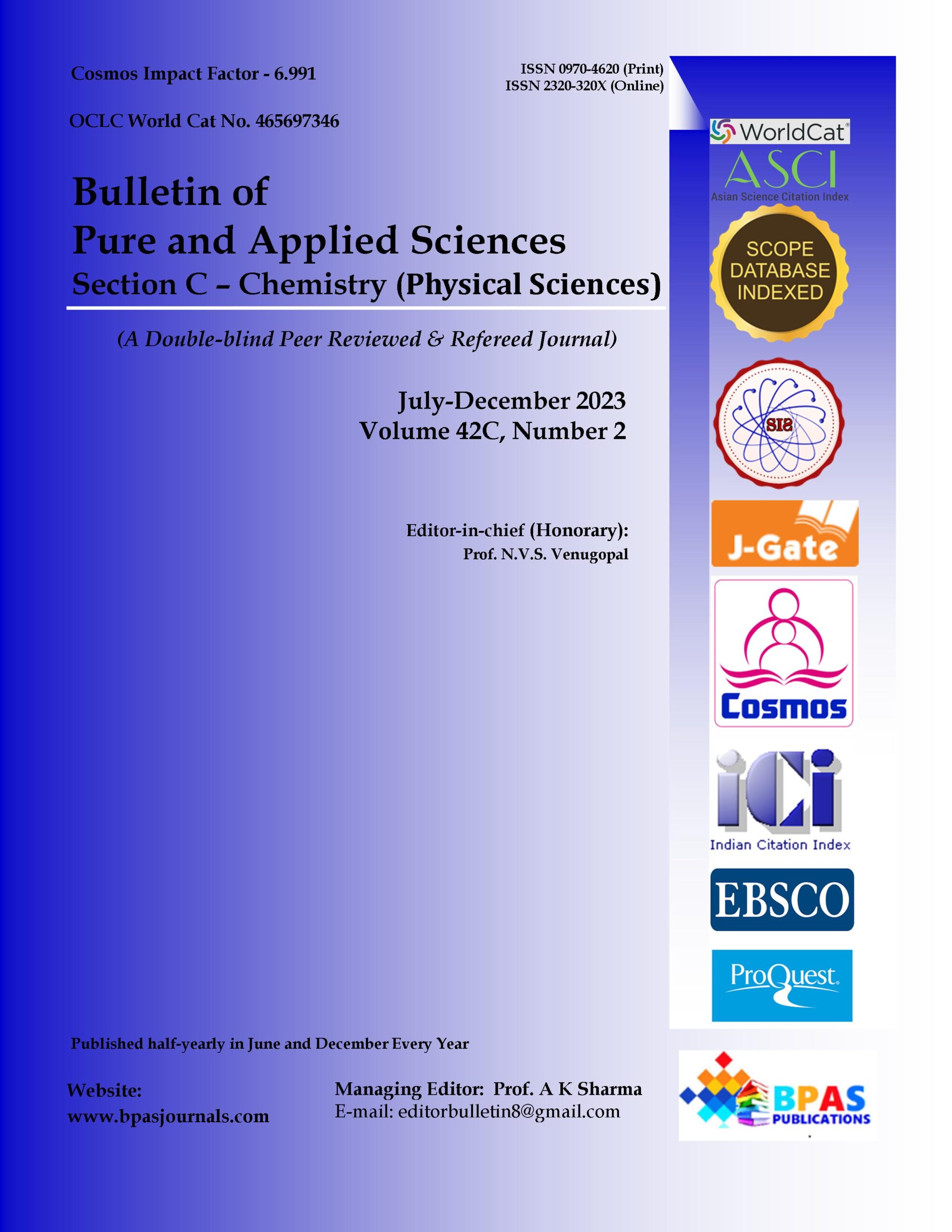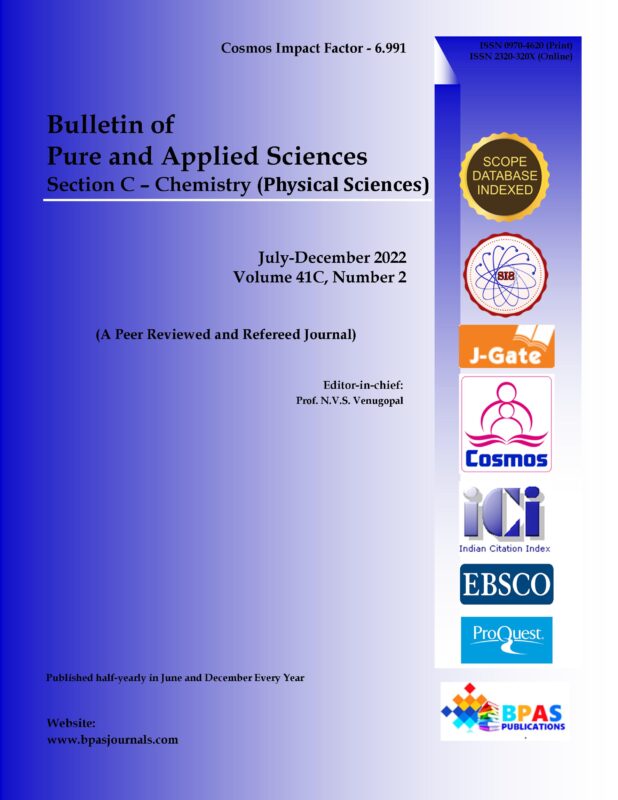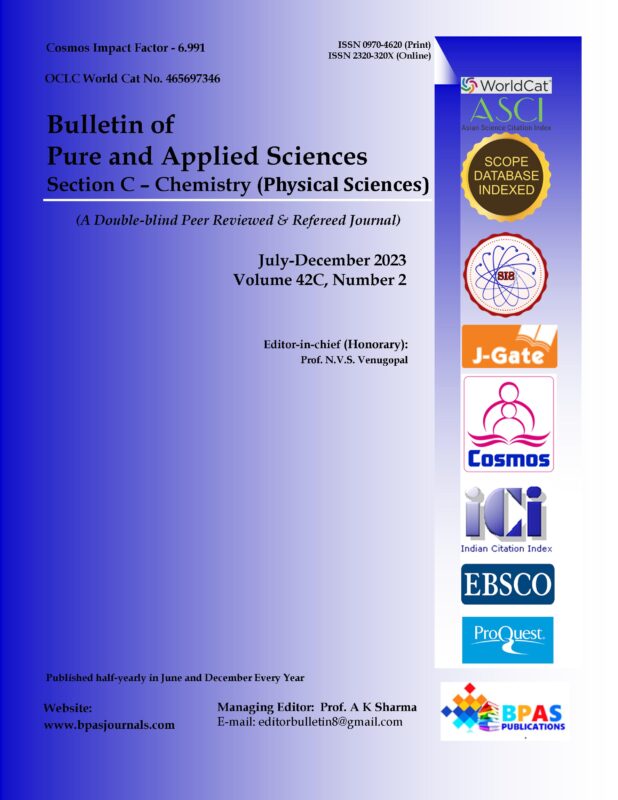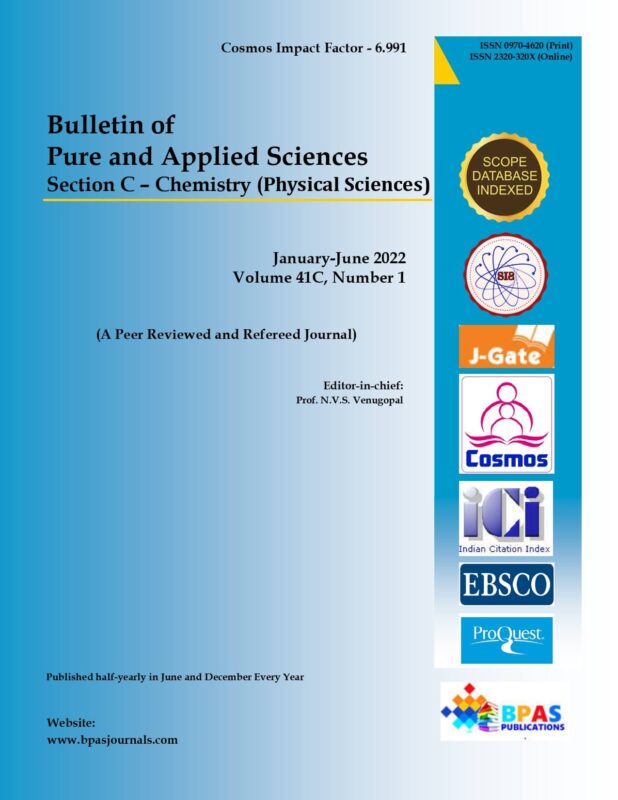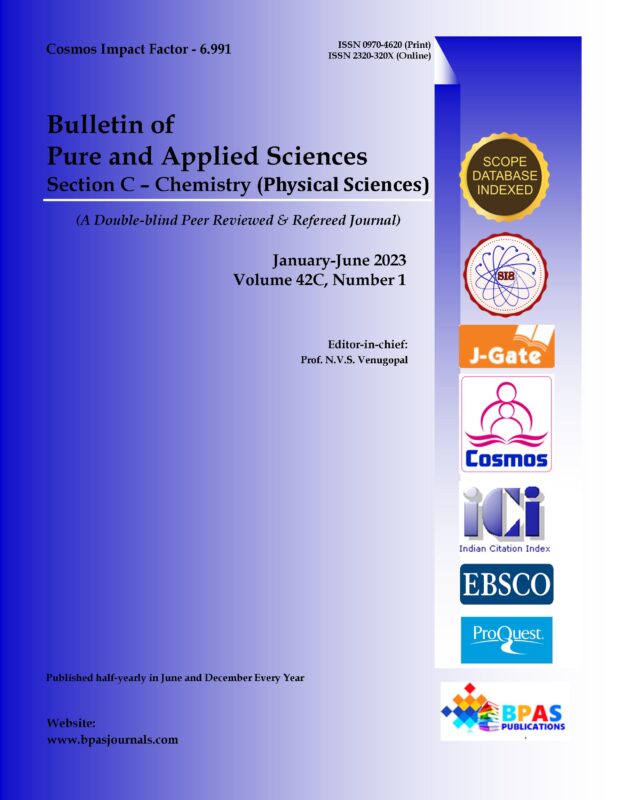Electrochemical Studies of Aluminium 7075 Alloy in Green Tea Leaf Powder as an Efficient Green Inhibitor
9.38$
1Pruthviraj R.D.* and 2Jahgirdhar A.A.
Original Article
Bulletin of Pure and Applied Sciences.
Chemistry , Vol.42 C, No.2
July-December 2023: P.51-56
Categories: 42C(2), JUL-DEC 2023, BPAS-Chemistry
Description
Description
1Pruthviraj R.D.* and 2Jahgirdhar A.A.
Author Affiliations
1Chemistry R&D Centre, Department of Chemistry, Rajarajeswari College of Engineering, Bengaluru, Karnataka 560074, India.
2Department of Chemistry, Dr. Ambedkar Institute of Technology, Bengaluru, Karnataka 560056, India
*Corresponding Author
Pruthviraj RD
Chemistry R&D Centre, Department of Chemistry, Rajarajeswari College of Engineering, Bengaluru, Karnataka 560074, India.
E-mail: pruthvirajrd@gmail.com
Received on 06.06.2023, Revised on 18.07.2023, Approved on 07.10.2023, Accepted on 18.11.2023, Published on 23.12.2023
Abstract
Corrosion is a major issue in every industrial system. As a result of its widespread application, aluminum suffers enormous annual losses due to corrosion. Scientists are continually on the lookout for effective anti-corrosion strategies. Corrosion may be reduced in a number of ways, but many of them are harmful to the environment, so it's important to find a green alternative. Corrosion inhibitors in aluminum alloys can be found in green tea. In this research, we found that aluminum alloy 7075 (Al-7075) in a 3.5% NaCl solution was inhibited by both green tea. Samples of Al alloy are submerged in 3.5% NaCl solutions with and without an inhibitor for a total of 4 days. The weight-loss technique is used to determine the effectiveness of an inhibitor, with green tea with the best efficiency of 83.93% compared to the greatest efficiency of 14.29% for green tea.
Keywords: Corrosion, Aluminum, Green Tea.

